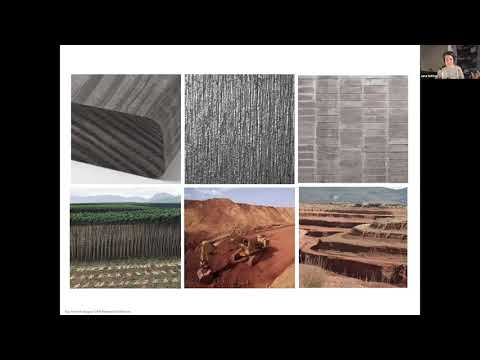
The Question of LAND What do climate emergencies, Covid-19 & racism have in common? The crises we are living through are interconnected, the prevalent political/economic models and dominant western mentalities have been shaping the planet and the relations between humans and nature for hundreds of years. They are at the root of the worlds crises and have fuelled a model of planetary urbanisation of relentless transformation based on the extraction, depletion and plunder of LAND and the humans and non-humans that inhabit them. From slavery plantations that fuelled the industrial revolution at the root of racism, to deforestation by industrial agribusiness that exacerbates zoonosis, the virus transfer from animals to humans due to habitat loss, the question of LAND and its exploitation is core to the origins of current crises and the spatial/material transformations of the planet. This lecture series will bring some of the voices within and outside the design profession that can help us shed light on these crises, their interconnection, injustices and how the question of land is woven through all them.
How are the far-away, invisible landscapes where materials come from related to the highly visible, urban landscapes where those same materials are installed? Reciprocal Landscapes: Stories of Material Movements traces five everyday landscape construction materials – fertiliser, stone, steel, trees, and wood – from seminal public landscapes in New York City, back to where they came from.
Jane Hutton is a landscape architect, teaching at the University of Waterloo School of Architecture. Her research looks at the extended material flows of common construction materials. Recent books include Reciprocal Landscapes: Stories of Material Movements, Landscript 5: Material Culture, and Wood Urbanism: From the Molecular to the Territorial, co-edited with Daniel Ibanez and Kiel Moe.